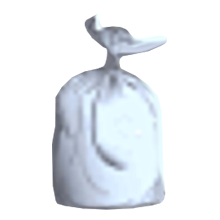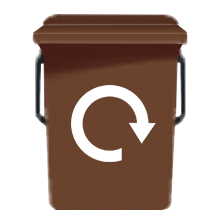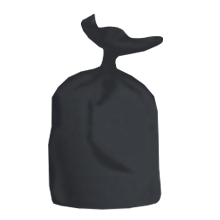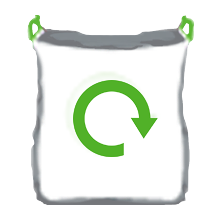On Saturday 6th May 2023, the Bailiwick of Guernsey will mark the Coronation of His Majesty King Charles III.
Across the Coronation weekend from 6th to 8th May, there will be opportunities for people to come together in celebration of the historic occasion.
Friday 5th May
- 7pm - Vigil for the King - at Forest Methodist Church
An opportunity to reflect on the themes of the Coronation service and their spiritual significance, and to pray for The King and The Queen Consort as they prepare for their Coronation the following day.
Saturday 6th May
- 10am-4pm - The Coronation service screening - at King George V Playing Fields and Community Centre
A live screening of the Coronation service at Westminster Abbey will be shown on a big screen at the KGV. Alongside the screening there will be family activities themed around the Coronation, including vintage games, Coronation crafts, information displays, royal fancy dress and photo opportunities for children and more. Drinks, cakes, sandwiches, and hot food will be served all day. Please note: There will be no parking at the KGV with the exception of extended blue badge holder places and plenty of bike parking. There will be a drop-off/pick-up zone in the car park and you can then park at Home Field or Shiloh Church. Le Petit Train will be running a free Coronation park 'n' ride service from Footes Lane to and from the KGV which will run between 9.45-11am and 2-4pm. Buses will be running a normal Saturday service including night buses. The KGV is on routes 41, 42 and P2. Please use active travel where you can. - 10.15am - Coronation parade - from Belvedere, Fort George to the Model Yacht Pond via Le Val des Terres and South Esplanade
At 9.45am the parade of serving and veteran military personnel with the Boys' Brigade band and the island standards will assemble at Belvedere, Fort George, followed by review by the Deputy Bailiff.
At 10.15am the parade will march off to the Model Yacht Pond via Le Val des Terres and South Esplanade. - 11am - Ring for the King - at the Town Church and the churches of Vale, Forest and St Pierre du Bois
Immediately before the Coronation service begins, as part of a national initiative local bell ringers and specially recruited newcomers will ring at all four churches which have suitable bells. - 12pm - The Coronation 21-gun salute - at Castle Cornet (closed to the public on Coronation Day)
A 21-gun salute will be fired at approximately 12pm as part of the national salute. All States of Guernsey museum sites including Castle Cornet will be closed on the day of the Coronation but will be open on 7th and 8th May.
Sunday 7th May
- 10am-4pm - Eat Drink and Be Local Seafront Sunday - at St Peter Port Seafront
Islanders are invited to the Seafront where the Eat Drink and Be Local Seafront Sunday will be joining in the 'Big Lunch', encouraging people to share lunch together in a nationwide act of celebration and friendship. - 6pm - The Coronation Church Service - at the Town Church
A celebration in word and music of the Coronation and its significance for the Bailiwick of Guernsey, to coincide with similar celebrations being held in cathedrals in England. - 6.30pm-10pm - The Coronation Concert screened live from Windsor Castle - at King George V Playing Fields and Community Centre
The special Coronation Concert at Windsor Castle will be broadcast live on the big screen at the KGV starting at 8pm, with the bar and refreshments available from 6.30pm. Islanders are invited to come, enjoy the music, dance, sing and celebrate.
During the concert, 'Lighting up the Nation' will see the country join in celebration as iconic locations across the United Kingdom are lit up. Castle Cornet, Fort Grey, and Beau Sejour will be lit up, in red, white, and blue.
Monday 8th May
- The Big Help Out
To mark His Majesty The King's Coronation, Guernsey will be participating in the Big Help Out, a UK-wide initiative to give us all the chance to help in our local communities.
In the Bailiwick, we are hoping that organisations from across the wide spectrum of voluntary organisations will offer opportunities for everyone to join in. No matter what you are good at, there'll be something to suit helping hands of all shapes and sizes. From checking in on someone who would like a bit of company, giving a hand with their shopping, helping a charity or sport or the environment and whether you wish to learn a new skill or put an existing one to good use.
Help us do something amazing. Join in, lend a hand, make a change.
Contact the Association of Guernsey Charities, admin@charity.org.gg to learn more.
Gift for school children
- All school-aged children in the Bailiwick will receive a special gift: A commemorative Guernsey Coronation stamp in an official presentation pack, produced and supported by Guernsey Post. These will be distributed later in the year.
What happens at the Coronation?
- Their Majesties The King and The Queen Consort will arrive at Westminster Abbey in procession from Buckingham Palace, known as 'The King's Procession.'
- The Coronation will take place at Westminster Abbey. Westminster Abbey's original buildings were built under the reign of Edward the Confessor c.1042-1066 and have been the setting for every coronation of a British Monarch since that of William I following the Norman conquest in 1066. The only kings not to be crowned in Westminster Abbey are Edward V who died and Edward VIII who abdicated in 1936.
- The Recognition - King Charles will stand before the congregation whilst the Archbishop of Canterbury acclaims 'Sirs I here present unto you Charles Philip Arthur George your undoubted King'.
- Coronation Oath - King Charles will then make the coronation oath before the high alter by placing his hand on the Bible and swearing to uphold the faith and law of the realm. The coronation oath was altered throughout much of history to meet political agendas. After the tumultuous reign of James II (R.1685-1688) Parliament implemented the Coronation Oath Act in 1688 thereby establishing a single uniformed oath for all future coronations.
- Anointment - King Charles will then be anointed in a tradition that harks back to the Old Testament when Zadok the Priest anointed King Solomon. The Archbishop of Canterbury pours the Holy Oil from the Ampulla onto the Coronation Spoon before anointing the monarch by drawing a cross on their head, hands and breast.
- Investiture - For the Investiture, King Charles will be presented with the Sword of State, the Coronation Bracelets, the Imperial robe and finally the Sovereign's orb.
- Homage - After being crowned, King Charles will receive homage from his peers. Firstly, from members of the Church followed by members of the Royal family and aristocracy in order of rank.
- During the crowning King Charles will be formally seated upon St. Edward's Chair that was commissioned by Edward I in circa 1300. The Archbishop of Canterbury will then crown King Charles with the crown of St. Edward. The Crown was made in 1661 for Charles II and is modelled on the original medieval crown of St Edward the Confessor that was destroyed during the abolition of monarchy in the 1650's.
- After the Service, Their Majesties will return to Buckingham Palace in a larger ceremonial procession, known as 'The Coronation Procession.' Their Majesties will be joined in this procession by other Members of the Royal Family. At Buckingham Palace, The King, and The Queen Consort, accompanied by Members of the Royal Family, will appear on the balcony to conclude the day's ceremonial events.
Guernsey's relationship with the Crown
- The Bailiwick's connection with the Crown stretches back centuries, however, it does not stem from the monarch's English and British roles. It is from their role as successor to the Dukes of Normandy in respect of the Channel Islands that the Islands owe their allegiance to British monarchs. The Channel Islands are the only part of the former Duchy of Normandy which remains loyal to the British Crown. This is why Islanders would toast 'La Reine/Le Roi, Notre Duc' which translates as 'The Queen/King, our Duke'.
- The Channel Islands formally became part of the Duchy of Normandy in 933, then Normandy and England came under a common ruler from 1066 after the victory of William the Conqueror at the Battle of Hastings.
- Although King John lost continental Normandy in 1204, the Channel Islands stayed loyal to the English Crown. The relationship between the Channel Islands and the monarchy was formalised in 1259 when the Treaty of Paris was agreed between Henry III of England and Louis IX of France. Although in it Henry III abandoned his right to the title "Duke of Normandy", his rights to the islands were confirmed and he still ruled the Islands in that capacity, continuing to observe their established laws, liberties and customs. These local rights were later confirmed in a series of Charters by successive Kings and Queens and are the origins and basis of the Bailiwick's status as a Crown Dependency.
Liberation Day events
- Alongside the Coronation Day events taking place from 5th - 8th May, there will be a number of events taking place for Liberation Day on Tuesday 9th May. For the full list of events taking place on Liberation Day go to liberationday.gg.














